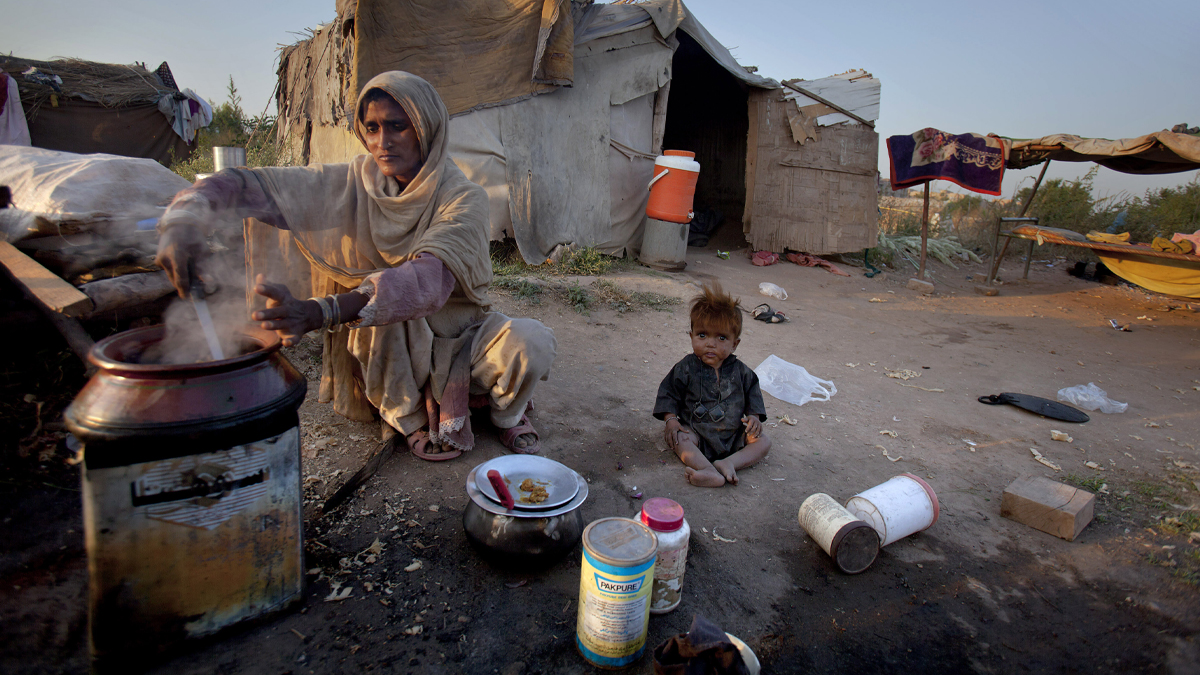
Pakistan is facing a critical challenge in its battle against hunger, as highlighted by the 2022 Global Hunger Index (GHI) released by Concern Worldwide in partnership with Welthungerhilfe.
Amidst global crises like armed conflicts, climate change, and the COVID-19 pandemic, hunger has become a severe issue in the economically strained nation, compounding the already existing problems of food insecurity worldwide.
Read more | Hunger looms as Taliban draft national budget
The GHI covers 129 countries and reveals that around 828 million people experienced hunger in 2021. The combination of various crises exacerbates the situation, making it imperative to implement targeted efforts to address the nutritional crisis and alleviate food insecurity in Pakistan and other countries.
The data from the report indicates that 46 countries, including Pakistan, are unlikely to achieve even a low level of hunger elimination by 2030, let alone fully eradicate hunger.
Once again, South Asia, including Pakistan, has emerged as the region with the highest hunger levels, particularly concerning child stunting and wasting rates.
According to the 2022 Global Hunger Index, Pakistan ranks 99th out of 121 countries, with a GHI score of 26.1, classifying its level of hunger as “serious.” This underscores the urgent need for measures to combat food insecurity in the country.
To tackle these pressing issues, Welthungerhilfe, Concern Worldwide, and other partners like ACTED, CESVI, and Helvetas have collaborated to launch the Global Hunger Index in Pakistan. The event brought together Food and Nutrition Security experts, government representatives, and civil society leaders to discuss the report’s findings and recommendations.
Policies to eradicate Hunger
The main policy recommendations from the 2022 Global Hunger Index were discussed during the event:
- Inclusive Governance and Accountability: The significance of inclusive governance and accountability in transforming food systems was emphasized. The government of Pakistan’s commitments and initiatives in this regard were outlined by Dr. Nazeer Ahmed, Chief of Nutrition.
- Citizen’s Participation, Action, and Oversight: Panel discussions highlighted the need to raise citizens’ awareness of their entitlements and pathways to food and nutrition security. Strong local leadership, particularly empowering local champions, especially women, was emphasized to ensure the sustainability of food systems interventions.
- Scaling up Resources for Humanitarian Needs: Stakeholders at all governance levels were urged to harness local voices and capacities, involving communities, civil society, small producers, farmers, and indigenous groups to shape the governance of access to nutritious food.
- Read more | 35% increase in Govt Employees salaries
As Pakistan strives to address its serious hunger levels, the findings and recommendations from the GHI serve as a vital roadmap for policymakers, activists, and stakeholders to collaborate and work towards building a hunger-free nation.



